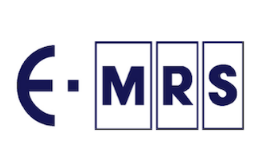PhD project in Canada
- Position Description
Health Canada requires the food industry to declare 10 allergens and gluten sources on food packaging. Given the growing number of tests required, and the high cost of allergen detection methods such as ELISA (Enzyme-Linked Immuno-Sorbent Assay), the famous precautionary statement “May contain …” has become overspread. In the absence of a more effective and less costly detection method, allergy sufferers will continue to impose either a restrictive diet or a risk to their health.
A team of researchers from three Quebec universities (Université de Sherbrooke, UdeS, Université de Montréal, UdeM and Université Laval) has teamed up with two government agencies (Canadian Food Inspection Agency, Health Canada) and two non-profit consumer organizations (Food Allergy Canada and Cœliaque Québec) to develop a new allergen detection method that is more robust, more sensitive, and less expensive than ELISA. The Raman probe consists of a carbon nanohorn (CNH) in which a dye is encapsulated and onto which an antibody is grafted. The Raman signal will be more precise and detailed than the fluorescence signal from ELISA and will enable parallel acquisition of signals from more than one allergen at a time. The aim is to offer the agri-food industry an effective, robust and less expensive device. Ultimately, this technological leverage will enable stakeholders to improve the use of precautionary allergen labelling and better protect allergic consumers.
The aim of this proposed thesis project is to develop the biomarker platform for allergen detection. The candidate will set the framework for the attachment of the antibody species into the probe, probes their characteristics, and apply the probing platform on a food matrix. The selected candidate will characterize and evaluate the antibodies to be used in the development of the technology. To do this, he/she will (i) prepare probes and reference materials for the main allergens selected, (ii) validate the performance of selected antibodies against the allergens, and (iii) develop an efficient protocol to attach the antibody to the nanostructure.
This thesis will be supervised by Pr. R. Martel and Pr. S. Gaisson of UdeM and Pr. S Godefroy of ULaval. The work will be carried out mainly at the Université de Montreal. The project will be carried out in close collaboration with the Université de Sherbrooke, the Canadian Food Inspection Agency, project partners and collaborators in international laboratories. The candidate will thus benefit from an exceptional international research environment where students, engineers, professors and industrialists work hand in hand to develop the technologies of the future to improve public health and the food industry in Canada.
- Your profile
– MSc degree chemistry, physics, surface functionalization, or related topic.
– Experience in immunology and in-depth experience in allergen detection methods (ELISA, PCR or other) are relevant assets.
– Ability to communicate both orally and in writing in English or French.
– Strong capacity for adaptation, autonomy, teamwork and problem-solving.
– Strong taste for design, experimental work, interdisciplinary R&D and entrepreneurship.
- To apply
CV, motivation letter and 2 references to provide at emplois-materiaux@usherbrooke.ca
À lire aussi

First Joint European MRS Chapter workshop
The Paris MRS Chapter is glad to organize the first joint European MRS Chapter workshop in collaboration with Cologne/Germany, Hasselth/Belgium and Genova/Italy MRS Chapters in Paris. From 19th to 22th March, you will have the chance to share and discuss...

PDF Project – Biomarker parameters identification for food allergens detection
Proposal for a postdoctoral fellowship in Canada. Position Description Health Canada requires the food industry to declare 10 allergens and gluten sources on food packaging. Given the growing number of tests required, and the high cost of...

PhD project – Signals quantification of Raman probe for allergen detection
Proposal for a PhD project in Canada Position Description Health Canada requires the food industry to declare 10 allergens and gluten sources on food packaging. Given the growing number of tests required, and the high cost of allergen detection...

PhD project – Optimization of Raman probe for allergen detection
Proposal for a PhD project in Canada. Position Description Health Canada requires the food industry to declare 10 allergens and gluten sources on food packaging. Given the growing number of tests required, and the high cost of allergen...
